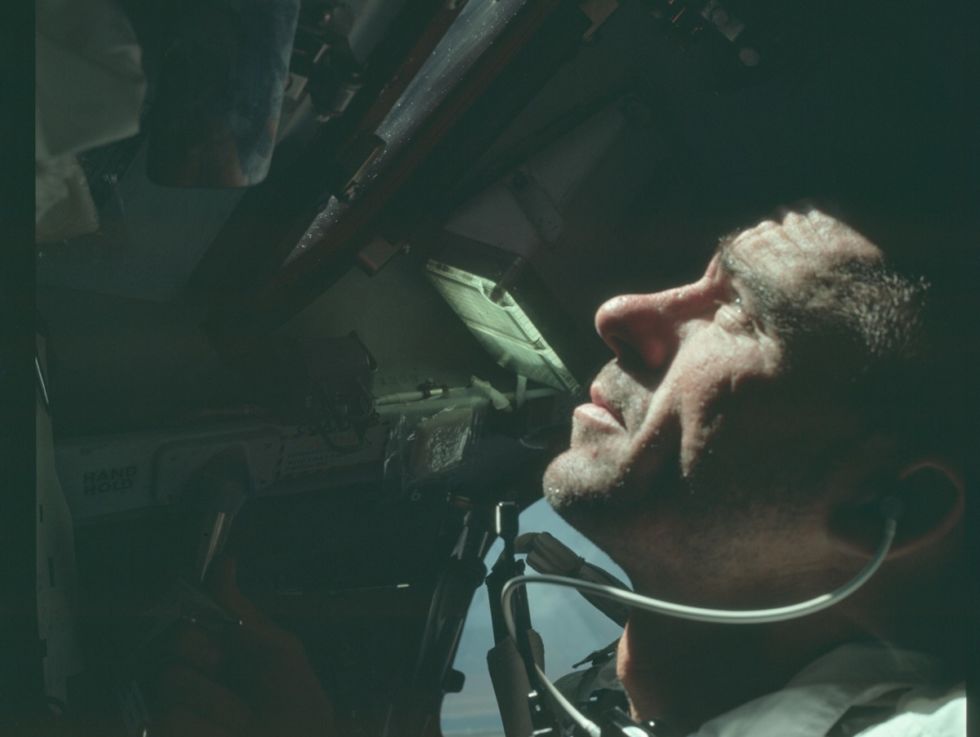[ad_1]
-

Walter Schirra in Command Module on Apollo 7. [credit:
NASA/National Archives and Records Administration ]
This year makes the 50th anniversary of the first manned lunar landing, so naturally we’re seeing a slew of films and TV series celebrating that milestone, like last year’s First Man biopic. The latest is a new documentary, APOLLO: Missions to the Moon, making its debut on the National Geographic Channel. Ars had the opportunity to sit down with filmmaker Tom Jennings and former NASA engineer Frances “Poppy” Northcutt back in June to talk about the making of the documentary, and revisit this pivotal moment in space history.
NASA’s Apollo space program is well-traveled ground in popular media, so Jennings faced quite the challenge in coming up with a fresh take with the material. Fortunately, this is also one of the most well-documented periods in 20th century history. The Emmy and Peabody Award-winning director pieced together his documentary using nothing but hundreds of hours of archival TV footage, radio broadcasts, film and audio from NASA Mission Control, black-box recordings from Apollo capsules—even the occasional home movie. There are no narrators or talking heads, and the end result provides a much more immersive experience for the viewer than your typical science documentary.
Jennings has used this approach before to produce documentaries about the late Princess Diana and the tragedy of the Challenger space shuttle. “Instead of someone telling you what is was like, I wanted to try and create something that’s almost like a motion picture, but everything is real,” he said. “I think that audiences, if they just give it a minute, get drawn in, in a way they might not in a more traditional documentary. For people who lived through it, it’s a way to re-experience it for the first time, and for those who aren’t old enough to remember, it’s as close as we can get to experiencing it for the first time.”
Read 9 remaining paragraphs | Comments
[ad_2]
Source link
Related Posts
- Cox Internet now charges $15 extra for faster access to online game servers
- What to know about measles in the US as case count breaks record
- NASA to perform key test of the SLS rocket, necessitating a delay in its launch
- Fiber-guided atoms preserve quantum states—clocks, sensors to come
- Trump administration puts offshore drilling expansion in Arctic, Atlantic on ice
